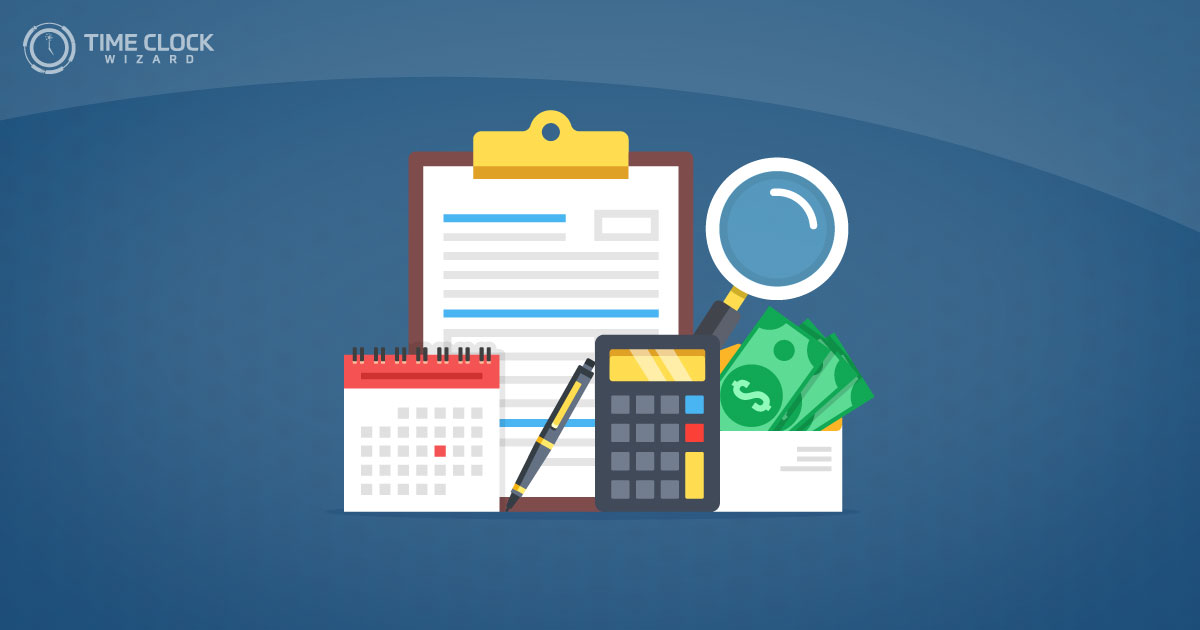
Navigating the employment landscape can often feel like a complex maze. As an employer or HR professional, understanding the key distinctions between 1099 vs W2 employees is absolutely crucial. But why do these differences matter, and how can they impact your business operations or compliance?
In this article, we’ll dive deep into the world of employment types, breaking down everything you need to know about 1099 vs W2 employees. Get ready to discover which type might be the best fit for your staffing needs and the legal implications that could affect your decision. It’s essential to make informed choices, so let’s get the facts straight and simplify some of those confusing terms!
From tax responsibilities to job flexibility, the differences between these two types of employment statuses can significantly impact both the employer and the employee. Don’t worry, we’re here to guide you through it all with clarity and ease 🕵️♤️!
Understanding the Basic Definitions of 1099 and W2
Grasping the fundamental differences between 1099 and W2 employees is crucial for anyone navigating the employment or contracting landscape. But what do these terms really mean, and why are they so important? Let’s break down the basic definitions to ensure you’re well-informed.
What is a 1099 Employee?
Often referred to as freelancers or independent contractors, 1099 employees operate under a significantly different set of rules than their W2 counterparts. These professionals are not considered employees but rather as self-employed individuals. They receive a 1099 form to report their earnings to the IRS. There’s a tempting level of freedom associated with this status, but it comes with the responsibility of managing one’s own taxes and benefits. Have you ever considered the freedom of working as a 1099 employee?
What Defines a W2 Employee?
On the other hand, a W2 employee is someone hired on a more traditional basis, which includes receiving a salary and employee benefits. These individuals have taxes withheld from their paychecks by their employer, who also contributes to payroll taxes. This arrangement often provides a layer of financial and job security, not to mention eligibility for unemployment and other employment benefits. Does the stability of being a W2 employee sound appealing to you?
As you navigate the complex terminology of 1099 vs W2 Employees, it’s useful to keep these distinctions in mind to choose the best fit for your career or business needs. The right understanding can influence not only your tax obligations but also your rights and benefits in the workspace.

Tax Responsibilities of 1099 vs W2 Employees Explained
Understanding the tax responsibilities of 1099 vs W2 employees is crucial for both workers and employers to manage their finances correctly. But what exactly are the differences? Let’s dive into the details!
W2 employees have taxes withheld from their paychecks by their employers. This includes federal income tax, Social Security, and Medicare. In contrast, 1099 workers, also known as independent contractors, are responsible for paying these taxes themselves. They make quarterly estimated tax payments to the IRS, which can be a bit of a surprise if you’re not prepared. Have you ever wondered how this system impacts your take-home pay?
- Deductions and withholdings automatically done for W2 employees.
- 1099 workers calculate and pay taxes on their own schedule.
- Misclassification penalties can arise if employers do not correctly determine employee status.
Moreover, 1099 workers often miss out on benefits that W2 employees enjoy, which affects their overall financial health. Do you think the flexibility of being a 1099 worker balances out the additional tax responsibilities?
Employment Benefits Comparison: 1099 vs W2
When delving into the differences between 1099 vs W2 employees, one of the most crucial aspects to consider is the range of employment benefits each category offers. Understanding these distinctions is not just important for the employees but also for employers who need to make informed decisions based on their business needs and financial capabilities.
W2 employees are often provided with a comprehensive benefits package that includes health insurance, retirement plans, and paid leave. This is because employers have a legal obligation to contribute to these benefits. Isn’t it reassuring to know that if you’re a W2 employee, these benefits are largely taken care of by your employer?
On the other hand, 1099 contractors usually do not receive the same benefits. They are typically responsible for their own health insurance, retirement planning, and they are not entitled to paid time off. This might sound daunting, but it also means that 1099 contractors can often demand higher rates due to the lack of benefits. But, have you ever wondered how this flexibility impacts their personal and professional stability?
- Health Insurance: W2 employees usually receive employer-sponsored health benefits, while 1099 contractors need to self-procure their insurance, often at a higher cost.
- Retirement Plans: Employers contribute to retirement benefits for W2 employees, whereas 1099 contractors must set up and fund their own retirement savings.
- Paid Leave: W2 employees generally enjoy paid vacations and sick days, unlike 1099 contractors who have no such compensation.
The absence of automatic benefits for 1099 contractors underscores the importance of careful financial planning and negotiation. For businesses, understanding these differences can aid in structuring roles and compensations to attract the right talent. When considering contracting or hiring, how do you weigh these benefits against the needs of your business?

Flexibility and Control: How 1099 and W2 Differ
When comparing the work arrangements between 1099 and W2 employees, flexibility and control over work hours and methods stand out as significant differences. Have you ever wondered how these differences impact your day-to-day work life or business operations?
1099 contractors enjoy a high degree of flexibility, choosing when and where they work. This freedom allows them to tailor their schedules to best fit their personal and professional lives. However, this independence also means less oversight and fewer guarantees of steady work, which can be a double-edged sword depending on one’s financial stability and work preference.
In contrast, W2 employees operate under the control of their employers who set specific work hours and closely supervise tasks. This arrangement can provide a sense of security and continuity, as well as structured career development opportunities. But, does this level of control and lack of flexibility appeal to everyone? It’s essential for both employers and employees to consider how these factors influence job satisfaction and productivity.
Key Takeaways for Employers and Freelancers
- High flexibility and control can boost freelance job satisfaction but may lead to unstable work streams.
- Employer-controlled environments guarantee stability but may limit personal freedom and creativity.
- Choosing between hiring a 1099 contractor or a W2 employee should consider the specific needs of the business and the nature of the work.
Common Questions
Is it better to be a W-2 or 1099 employee?
Determining whether it’s better to be a W-2 or 1099 employee depends largely on individual circumstances including career goals, financial needs, and personal preferences. W-2 employees are considered traditional employees receiving steady wages, employee benefits (like health insurance and retirement plans), and have taxes withheld by their employers. This offers greater job security and less administrative burden regarding tax payments. Conversely, 1099 employees, or independent contractors, typically have more flexibility in terms of hours and projects, and possibly higher pay rates, but they lack employee benefits and must manage their own tax withholdings and payments. This setup can provide greater freedom but also entails more potential financial volatility and requires good financial discipline.
Do 1099 employees pay more in taxes?
1099 employees can often face higher tax burdens compared to W-2 employees, primarily because they have to pay both the employee’s and the employer’s share of Social Security and Medicare taxes, known collectively as self-employment tax. While W-2 employees share this tax responsibility with their employers, 1099 workers are responsible for the full contribution, thus increasing their tax liability. Additionally, 1099 employees must handle their own income tax payments, including making estimated tax payments throughout the year if they expect to owe $1,000 or more in taxes, which requires careful financial planning to avoid underpayment penalties.
What if my employer gives me a 1099 instead of a W-2?
If your employer issues you a 1099 form instead of a W-2 and you believe you have been misclassified, it’s important to first discuss the issue with your employer to understand the reasoning behind the classification. Misclassification can affect your rights and benefits such as Social Security, Medicare, unemployment insurance, and worker’s compensation. If the issue is not resolved after discussing it with your employer, you can file a complaint with the IRS using Form SS-8, Determination of Worker Status for Purposes of Federal Employment Taxes and Income Tax Withholding. Additionally, you might consult a tax professional or an attorney to explore your options and protect your rights.
Is it beneficial to be a 1099 employee?
Being a 1099 employee can be beneficial for individuals who value flexibility and autonomy over the traditional employment structure. 1099 employees can often choose when, where, and how much to work, which can be particularly advantageous for those managing multiple clients or balancing various personal responsibilities. This flexibility can lead to higher earning potential especially if one is skilled in a high-demand field. However, the benefits also come with increased responsibilities including the need to manage one’s own taxes, lack of employer-provided health benefits, and potentially dealing with fluctuating income. Therefore, the benefits of being a 1099 employee depend largely on an individual’s career goals, personal circumstances, and financial discipline.
Legal Protections for 1099 and W2 Employees
When it comes to understanding the legal landscape surrounding employment, knowing the protections afforded to 1099 vs W2 employees is crucial. Are you aware of how your status as an employee or contractor affects your legal rights?
W2 employees, often considered the standard for full-time employment, benefit from a substantial legal protective framework. This includes access to unemployment benefits, worker’s compensation, and compliance with federal regulations like the Family and Medical Leave Act (FMLA). The security that comes with being a W2 employee can provide a significant peace of mind.
On the other hand, 1099 independent contractors experience a different set of protections and challenges. For instance, 1099 workers have the freedom to set their own hours and choose their clients, but they lack many of the safeguards that W2 employees take for granted, such as job security and benefits. They are also responsible for their own taxes, which adds an extra layer of financial management.
- Unemployment benefits eligibility
- Access to health insurance and retirement plans
- Legal rights under employment law
Why is this distinction important? For both employers and workers, understanding these differences ensures compliance with labor laws and aids in making informed decisions about employment structures. If you’re a worker deciding between a 1099 or a W2 position, consider not just the flexibility or income potential, but also the long-term legal and financial implications. Want to know more about how these distinctions could impact your career or business? Keep reading!
Final Thoughts: Comparing 1099 vs W2 Employees
With all the differences between 1099 vs W2 employees laid out, isn’t it easier to know which might be the perfect fit for your organization? Whether you’re leaning towards the flexibility of a 1099 contractor or the structured benefits of a W2 employee, understanding these key distinctions helps you make informed decisions that align best with your business goals.
Remember, picking the right type of employment structure can influence your operational dynamics and financial outcomes. While 1099 employees offer financial flexibility, W2 employees add stability and long-term benefits to your team. So, take a moment to reflect on what your business really needs—are you all about scaling and adapting quickly or are you aiming to build a steady, committed workforce? Don’t rush your decision, and feel free to revisit this discussion as your business evolves!





